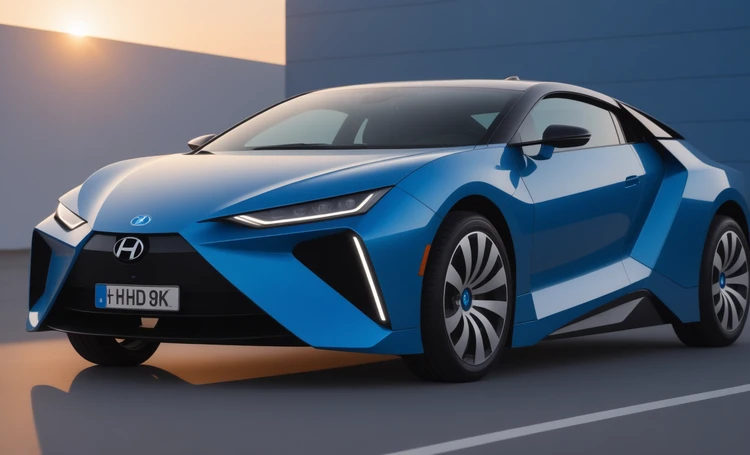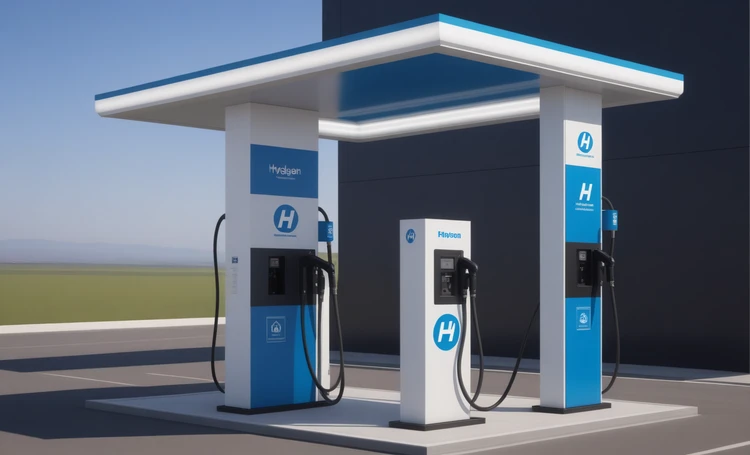🌍🚗 Engine Comparison: Advantages of Hydrogen Engines
In a time when environmental safety and transport efficiency are becoming key factors, it is important to understand the differences and advantages of different types of engines. Find out more about the benefits of hydrogen engines here. In this article we look at why hydrogen engines could be an important part of the future of transport, especially in the context of Germany, America and Europe.
📊 Main Characteristics of Hydrogen Engines
Ecological Cleanliness
The main advantage of hydrogen engines is their environmental friendliness. Unlike traditional internal combustion engines, the only “exhaust” from a hydrogen engine is water. This means a significant reduction in emissions of carbon dioxide and other harmful substances.
Energy efficiency
Hydrogen engines are highly energy efficient. They are able to convert a higher percentage of energy input into mechanical work compared to traditional motors, making them more economical in the long run.
Silent Operation
Another important advantage is the quietness of hydrogen engines. This is especially true in urban environments, where noise from traffic is a serious problem.
🌿 Environmental Aspects
Reducing your Carbon Footprint
The use of hydrogen engines significantly reduces the carbon footprint of transport. This contributes to the achievement of global environmental goals such as the Paris Climate Summit agreements.
Improving Air Quality
With a reduction in emissions of harmful substances, especially in large cities, air quality significantly improves, which has a positive effect on public health.
Sustainable development
The transition to hydrogen engines contributes to the sustainable development of urban and suburban areas, reducing dependence on fossil fuels and promoting the use of renewable energy sources.
💡 Technological Innovation
Development of Hydrogen Fuel Technologies
Hydrogen production and storage technologies are constantly being improved, making its use in vehicles easier and safer.
Integration with Intelligent Systems
Modern hydrogen engines are easily integrated with intelligent transport systems, providing high efficiency and comfort in driving vehicles.
Innovative Solutions in Design
The development of compact and efficient hydrogen engines allows car manufacturers to create new, innovative vehicle models.
🌏 Impact on the World Market
Stimulating the Global Economy
The transition to hydrogen technology can boost the global economy by creating new jobs and supporting the development of new industries.
Contribution to Energy Independence
Hydrogen engines reduce dependence on imported oil and gas, contributing to the energy independence of countries and regions.
Development of International Cooperation
The development of hydrogen energy opens up new opportunities for international cooperation in research and development.
🏛️ Political and Legislative Aspects
Legislative Support
Many countries are introducing laws and regulations that promote the development and adoption of hydrogen technologies.
Infrastructure Development
For the full functioning of hydrogen vehicles, the development of appropriate infrastructure, including networks of filling stations, is required.
International Agreements
International agreements and standards play a key role in ensuring the safety and efficiency of hydrogen technologies.
🔍 Comparison with Other Types of Engines
Hydrogen vs Gasoline Engines
- Environmental friendliness: Hydrogen engines are much more environmentally friendly, as they do not produce harmful emissions.
- Efficiency: Hydrogen engines are more efficient at converting energy.
Hydrogen vs Electric Engines
- Range: Hydrogen cars generally have a longer range than electric cars.
- Charging Time: Hydrogen tanks can be refilled faster than charging an electric car battery.
Hydrogen vs Diesel Engines
- Emissions: Diesel engines produce more harmful emissions, including nitrogen oxides and particulate matter.
- Fuel Costs: Hydrogen may be a more economical option in the long run.
📈 Statistics and Forecasts
Current State of Hydrogen Technologies
At the moment, hydrogen technologies are still at the stage of active development. Despite this, commercially available hydrogen cars already exist.
Development Forecasts
Experts predict a significant increase in the share of hydrogen cars in the coming decades. It is expected that by 2040 they will occupy a significant part of the automobile market.
Market Statistics
Currently, the largest number of hydrogen cars are operated in countries with developed infrastructure, such as the USA, Germany and Japan.
🌱 Environmental Contribution
Reducing Your Carbon Footprint
Switching to hydrogen engines significantly reduces carbon dioxide emissions, helping to combat global warming.
Reducing Air Pollution
Hydrogen engines do not produce harmful emissions such as nitrogen oxides and hydrocarbons, which improves air quality in cities.
Sustainable development
The use of hydrogen from renewable energy sources contributes to the transition to sustainable development.
🛠️ Technological Innovation
Progress in Hydrogen Storage and Transport
Developments in hydrogen storage and transportation are improving the safety and efficiency of hydrogen engines.
Innovation in Fuel Cells
Modern fuel cells are becoming more efficient and durable, increasing the appeal of hydrogen cars.
Integration with Other Modes of Transport
Hydrogen technologies are being actively researched not only for cars, but also for other modes of transport, including trains and ships.
📊 Economic Analysis
Cost of Ownership and Operation
Although the initial cost of hydrogen cars may be higher, operating costs are often lower compared to traditional cars.
Market Growth Potential
The hydrogen car market has great potential for growth, given interest in clean technologies and support from governments.
Investments and Financing
Significant investments in hydrogen technologies are helping to accelerate their development and commercialization.
🏁 Results and Conclusions
Hydrogen engines represent a significant advance in transportation technology. They offer a number of key benefits, such as environmental friendliness, high efficiency and the potential to reduce dependence on fossil fuels. These factors make them an important element in the pursuit of a sustainable and green future.
The development of hydrogen technologies also contributes to economic growth, job creation and improved energy security. However, their widespread adoption requires significant investment in infrastructure and further technological innovation.
In conclusion, hydrogen engines can play a key role in the future of the transportation industry, offering an alternative to traditional fossil fuels and facilitating the transition to more sustainable and environmentally friendly methods of transportation.





